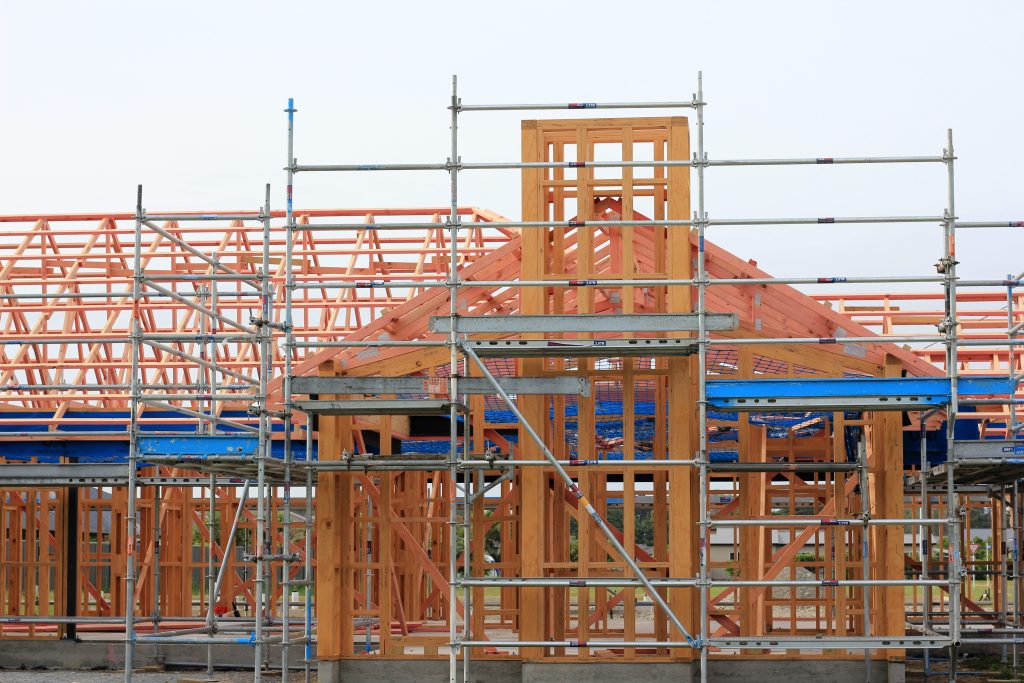I have recently spoken to numerous clients who, having signed fixed price domestic building contracts, have been asked by their builder for extra payments outside the contract.
A particularly shocking case was described in a recent article published on news.com.au – which you can access by clicking here. In short, a young man signed a fixed price building contract for $675,000. The build was delayed for a year (the reasons for this are not clear) and once the concrete slab was poured the builder asked for an extra $125,000 to cover ‘rising costs’. The young man was unable to come up with the additional funds and the contract was ‘mutually cancelled’. The builder retained their ‘costs’ of work done to date ($92,000) and promised to refund to the young man around $9,000 – being the balance of the $101,000 he had paid to that point.
To be clear, we are not talking about cases where builders are legally entitled to ask for additional funds. Examples of this include variations, prime and provisional cost items and other causes identified under the contract. Some building contracts also include special conditions that allow the builder to ask to be reimbursed if material prices increase or allow the builder to increase the contract price if the project is delayed.
No – this appears to be a case where the builder, with no legal basis, simply asked for more money. I can’t be 100% sure about the case described in the article – but I know from other clients that this is not an uncommon situation. In one case, having received substantial additional funds from the client, the builder then made a second request some months later!
In this article I want to explore what builders are doing, what rights the property owner has and how a property owner might respond to and, better yet, avoid the sorts of issues described in the news.com.au article.

Claims a Builder is Entitled to
Whilst the standard domestic building contracts are intended to be fixed price contracts, there are a range of matters that do allow the builder to claim additional sums quite legally. Some of the more common examples include:
- Variations – Where the owner requests a variation or the builder considers a variation is required then the Builder may be entitled to charge extra for the variation;
- Prime Cost and Provisional Cost Items – If estimates for prime costs and provisional costs are included in the contract and the actual cost is higher then the Builder is likely entitled to charge the owner the excess and possibly a margin on top;
- Delays and Suspensions – If the work is delayed as a result of the owner not making a decision or payment then the Builder may be entitled to compensation for the delay; and
- Special Conditions – We are seeing an increasing array of special conditions that allow the Builder to charge extra fees if the build is delayed or if there are increases in material costs.
To be clear – these sorts of claims have some contractual basis and, subject to the facts of each case, the Builder may be legitimately entitled to make these claims.
Claims Without a Legal Basis
Recently we have seen numerous instances where Builders – both small and medium sized – have asked for extra payments on account of ‘rising costs’. These are claims that are not based on any contractual right. The clear implication is that if you, as owner, don’t pay then your build won’t be completed and the potential downside could be larger than the requested payments.
It is surprising how many owners have agreed to and made these payments. However, this is a bit of a shadowy practice so there aren’t any statistics that I am aware of in relation to how common such payments are or the quantum of these payments.
Why are These Claims Being Made?
My view is that the HomeBuilder program led to many small to medium Builders taking on much more work than they usually did. Anecdotal reports suggest that some smaller Builders signed up 4 times as much work during that period as usual.
It shouldn’t come as a surprise that a sudden surge in building work led to increases in the cost of material and trades as well as a delay in completing projects.
At the same time, the payment structure under domestic building contracts allows Builders to pretty much fund the project out of the payments they receive. Put another way, many Builders don’t have a lot of capital behind them.
Hence, in circumstances where prices were rising and projects were taking longer than usual to complete many Builders started to incur costs that were higher than expected and therefore suffer losses. These Builders often lack any significant capital resources to absorb these losses. Hence Builders are going into liquidation and / or hitting on clients for extra payments.
How to Respond to a Baseless Claim
If you do receive such a claim from your Builder it is important to understand your legal rights.
The first thing to understand is whether there is a legal basis for the claim. A simple question for the Builder is – what clause of the contract are you making this claim under? As there is a degree of bluff on the Builder’s part in making a baseless claim maybe this will discourage some Builders from pursuing the claim?
If you have received a baseless claim it is worth obtaining some advice.
A key question will be what it might cost to get another Builder to complete the build if the current Builder defaults. In a time of rising building costs this can be quite sobering, That is, the extra payment sought could well be less than the costs associated with terminating the building contract and appointing another Builder.
In the news.com.au article referred to above, the owner agreed to a mutual termination. The result was that the Builder was entitled to claim for the value of work done. The owner might have been better off forcing the Builder to default in which case the owner might have been entitled to a larger claim against the Builder.
If you are inclined to agree to some additional payment you need to ensure that your rights are protected:
- Is there an assurance there will be no further claims?
- When will the additional funds be paid – ideally it should be on completion?
- If the Builder’s solvency is in question – what protections can be put in place in case the Builder does go into liquidation?
If you do face such a claim and need some advice – please contact us!
Prevention is Better than Cure!
A key part of the solution is do carefully investigate the builder’s track record before you sign a contract. It should go without saying that there are many competent and conscientious builders out there.
Another key part is to get advice before you sign a building contract.
Lewis O’Brien and Associates offers a building contract review service to help owners about to sign a building contract. For a fixed fee of $750.00 plus GST (for domestic building contracts) we will provide:
- a written review of your building contract which highlights issues that you should be aware of and special conditions inserted by the builder;
- our recommended special conditions to help ensure the contract is fair; and
- you can book an individual zoom or phone call to ask questions about the review and the contract generally with an experienced lawyer.
We will include a number of special conditions that will help protect your rights if the builder can’t finish the work whether that be a result of insolvency or a simple lack of professionalism.
If you are about to sign a contract for a six or seven figure sum – getting the contract reviewed by a lawyer that is on your side is a simple and cost effective way to protect yourself and help to ensure the builder is motivated to deliver the project on time.
To contact us and arrange a review – please click here.
If all you want is our recommended special conditions – you can purchase them by clicking here.
If you aren’t thinking of signing a building contract, but know someone that is please share this article with them.

Lewis O’Brien
Victoria’s Preferred Property Lawyer